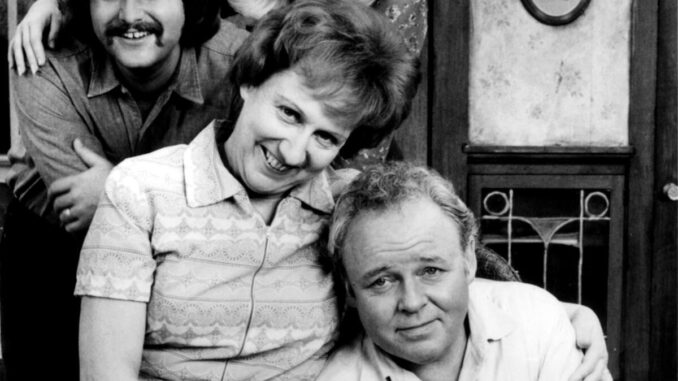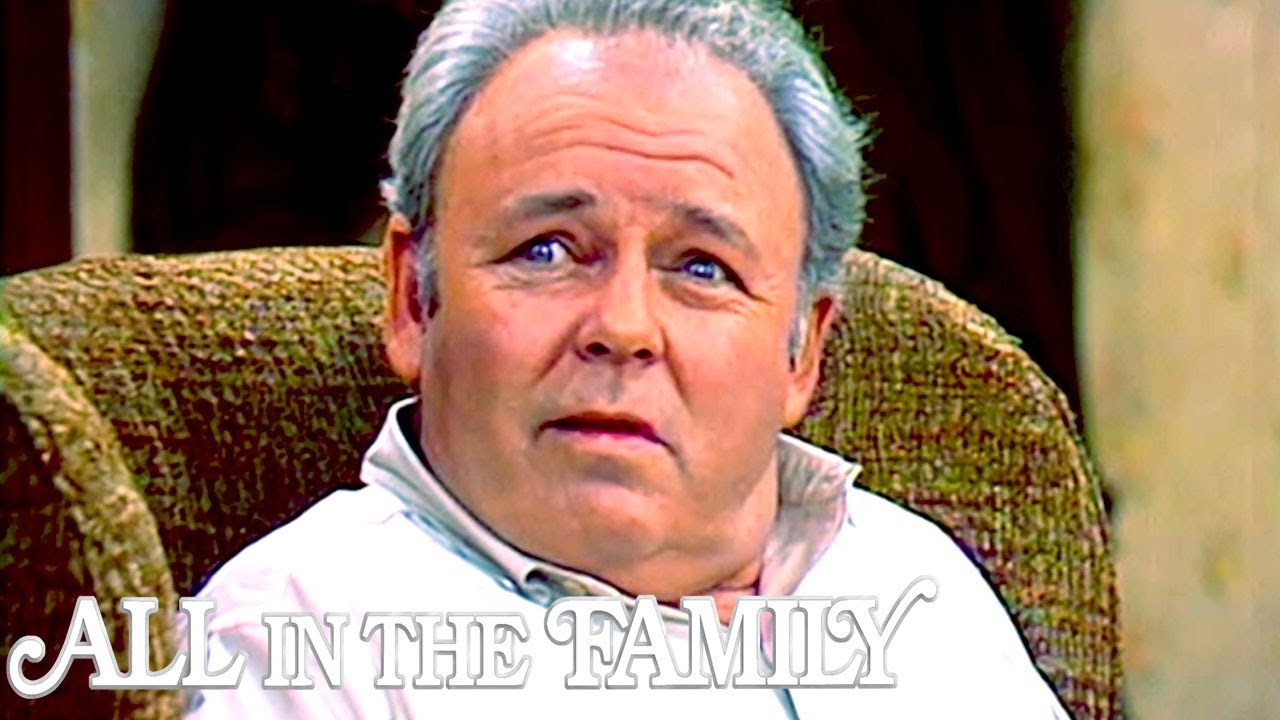
The Comeback Conversation America Doesn’t Want to Have
Archie Bunker.
Even the name is a cultural earthquake.
For millions of viewers in the 1970s, he was the loud, opinionated, politically incorrect heart of All in the Family. He said what others thought but never dared to voice. He represented a slice of American life—raw, unfiltered, uncomfortable, and real.
But fast-forward to today?
Archie Bunker wouldn’t last a single week on television. He’d be canceled before the pilot even finished airing.
And maybe, just maybe… that’s exactly why we need him more than ever.
Why Archie Bunker Hit Hard in the 1970s
A Character Built on Brutal Honesty
Archie wasn’t polished or politically correct. He was flawed, stubborn, and hilariously unaware of his own contradictions. But the magic lay in his authenticity.
He represented an entire generation grappling with rapid cultural change.
He Forced Viewers to Face Real Issues
Racism, sexism, class divides, generational tensions — All in the Family didn’t tiptoe around anything.
Instead, it welcomed viewers into a living room where messy conversations were the norm.
Archie Became a Mirror
Sometimes we laughed at him.
Sometimes we recognized ourselves in him.
Sometimes he made us uncomfortable.
But that discomfort sparked necessary conversations.
Why Archie Bunker Wouldn’t Survive in Today’s TV Landscape
The New Rules of Acceptable TV
Television today operates with stricter boundaries. Characters must be safe, likable, or at least morally redeemable. Archie? He was none of those things — and that was the point.
Cancel Culture Wouldn’t Let Him Breathe
One clip of Archie’s opinions would hit social media and explode.
Before context, nuance, or character growth could be explained, the outrage machine would roll into full speed.
Modern Viewers Often Prefer Sanitized Comedy
Today’s sitcoms often avoid controversy, opting for polished humor that doesn’t challenge ideological comfort zones.
Archie challenged everyone — left, right, young, old.
Today that’s rare.
But Here’s the Twist — We Need Archie More Today Than Ever

We’ve Lost the Art of Disagreeing
Archie Bunker represented a fundamental truth:
People can be wrong without being evil.
He argued fiercely.
He ranted.
He said awful things.
But he also loved deeply, learned slowly, and showed that flawed people can grow.
Archie Encouraged Conversation, Not Outrage
Every episode used humor to expose the absurdity of prejudice — without pretending those prejudices didn’t exist.
It created a safe space where audiences could confront uncomfortable ideas without fear or moral judgment.
He Showed Change Happens Through Dialogue
Archie changed — not because he was shamed or canceled, but because he was challenged, loved, and sometimes proven wrong by the people close to him.
That’s a lesson society could use today.
The Real Genius Behind Archie Bunker’s Character
Flawed on Purpose
Norman Lear didn’t create Archie to be a role model.
He created him to be a wake-up call.
Archie’s biases weren’t glorified.
They were exposed, questioned, and dismantled—episode by episode—through humor and storytelling.
His Humanity Made Viewers Listen
Archie wasn’t a villain. He was a product of his time, upbringing, and fears.
That complexity created space for empathy, even when viewers disagreed with him.
He Was a Teaching Tool
By watching Archie, millions learned:
-
why stereotypes are destructive
-
how ignorance forms
-
how compassion breaks walls
This type of character-driven social commentary is rare in today’s media.
The Modern Void Left by Archie Bunker
Sitcoms Avoiding Real Issues
Most modern sitcoms focus on humor that entertains, not humor that disrupts.
Characters Too Perfect to Be Believable
Many TV characters today embody idealized versions of morality. Meanwhile, Archie represented the messy middle — the place where most people actually live.
No Show Dares to “Go There” Anymore
Archie Bunker sparked discussions at dinner tables nationwide.
Today, TV shows avoid topics that might offend even a fraction of the audience.
The result?
Entertainment that amuses, but rarely challenges.
What a Modern Archie Bunker Would Look Like
Not a Copy — but an Evolution
He wouldn’t say the same things Archie said in the ’70s, because society has changed.
But he would still represent the voice that’s uncomfortable, provocative, and rooted in a specific American viewpoint.
His Purpose Would Remain the Same
-
To expose prejudices
-
To challenge stereotypes
-
To spark hard conversations
-
To show flawed people can grow
He Would Reflect Today’s Divisions
A modern Archie might tackle issues like:
-
political polarization
-
media bias
-
generational conflict
-
cultural identity
-
misinformation
-
rapid social change
And he’d do it with humor sharp enough to cut through the noise.
Why People Misunderstand Archie Bunker Today
Watching Clips Without Context
Social media highlights the worst five seconds of a character — not the emotional arc behind him.
Forgetting That He Was Written As a Satire
Archie wasn’t written to be admired.
He was written to be examined.
Losing Sight of Edith, Meathead, and the Family Dynamic
Archie’s growth came from the people around him.
He was a cultural experiment—one that worked because he existed in a world where he was challenged lovingly.
What Archie Taught Us That We’ve Forgotten
Conversations Change People
You can’t shame someone into evolving.
You can only talk them into it.
Humor Softens Hard Truths
We laughed at Archie so we could learn from him.
Complexity Matters
People can hold terrible beliefs and still be human.
Understanding that complexity is key to social progress.
The Uncomfortable Truth America Must Face
We miss Archie Bunker not because we want his opinions back — but because we want his conversations back.
We want television that:
-
doesn’t fear controversy
-
shows flawed characters learning
-
represents honest, messy human behavior
-
makes us think as much as it makes us laugh
Archie wasn’t perfect — and that was the point.
Conclusion
Archie Bunker could never exist on television today. The world has changed, and the boundaries of acceptable dialogue have shifted dramatically. But in losing Archie, we also lost a powerful tool for understanding ourselves.
He showed us that real change doesn’t come from silencing offensive ideas — it comes from confronting them, questioning them, and laughing through the discomfort. Archie forced America to talk honestly about issues many were too afraid to discuss. And in an era where discussions have become battles, his presence feels more necessary than ever.
We may not need Archie’s words, but we desperately need Archie’s courage — the courage to speak, listen, argue, grow, and ultimately understand one another.
